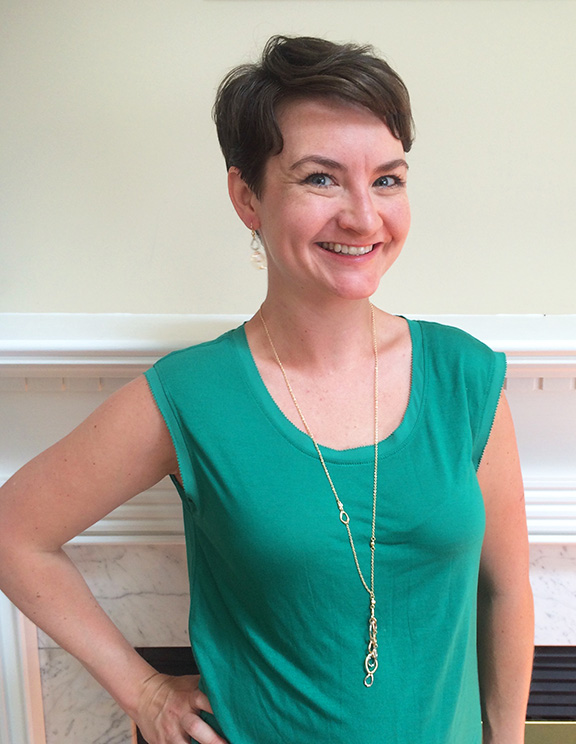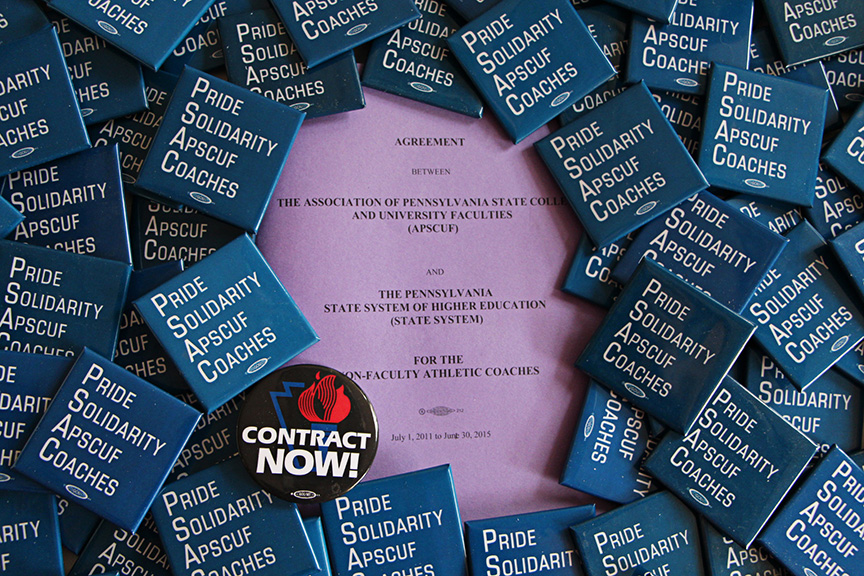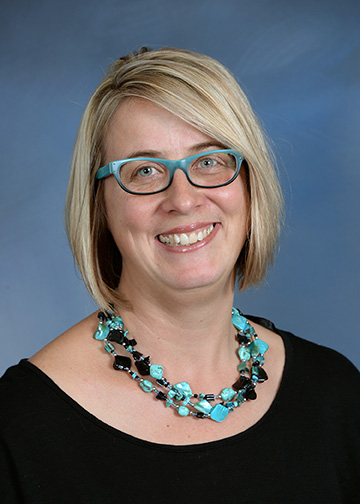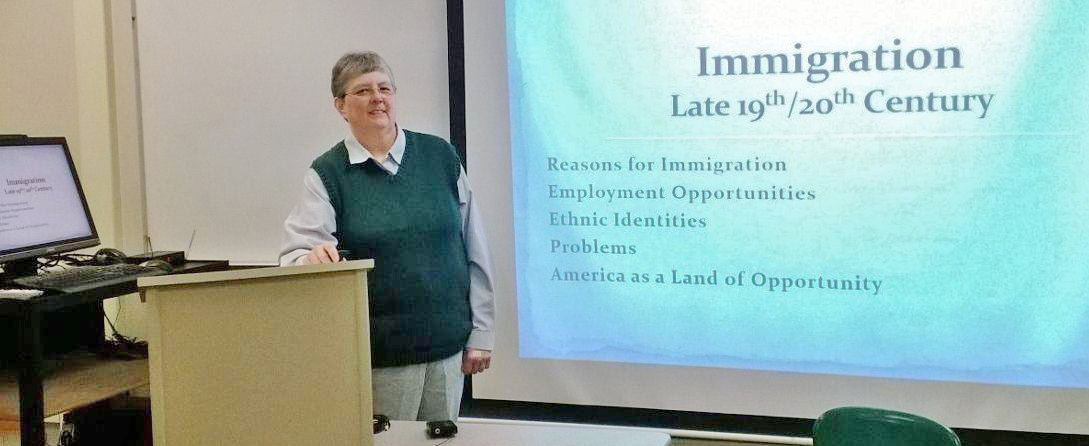Blog
APSCUF life: Making lives better
This summer, APSCUF is going behind the scenes to show how faculty members and coaches continue to devote themselves to affordable, quality education even when class is not in session.
 At Kutztown University, Dr. Emily Cripe, assistant professor of communication, often checks her email while her son eats breakfast or spends six hours at the office each weekend simply to keep caught up.
At Kutztown University, Dr. Emily Cripe, assistant professor of communication, often checks her email while her son eats breakfast or spends six hours at the office each weekend simply to keep caught up.
“The line between work and home is very blurry,” Cripe said.
Cripe teaches four class loads per semester on top of her other responsibilities on campus. Juggling her 40 advisees, attending various meetings, and devoting herself to committee service keeps this wife and mother on her toes.
Additionally, Cripe is often responsible for overseeing as many as five interns a semester.
“It’s challenging to get everything done that we’re expected to accomplish and to find a balance between all of those activities,” Cripe said. “It’s easy to spend all of your time with students and neglect research and professional development.”
Simply showing up for work is not enough for her to feel that she has done her job well, she said.
“I try to be very accessible to students, so I frequently advise students outside of regular office hours about everything from course papers to graduate school to family issues,” Cripe said.
The hours spent with her students can become especially time-consuming during registration periods in the semester. It is not unusual for Cripe to spend 20 hours a week advising during these demanding times.
Then there is her research. Cripe, whose specialty is in health and organizational communication, plans to publish her findings related to breastfeeding-support groups. She became interested in breastfeeding in graduate school, when she realized breastfeeding in the workplace is an area of study that covers all of her communication specialties: gender, health, and organizational communication. Upon further research, Cripe realized how divided society is on breastfeeding in general.
“We want women to do it because it has health benefits, but we don’t want to see it, or really offer much assistance with the whole process,” she said.
Upon her arrival at Kutztown, Cripe was shocked to see the quality of the campus lactation rooms, most of which did not even have a sign indicating their purpose, so very few mothers were aware of their existence. Through her committee service as vice chair of the Commission on the Status of Women, Cripe was able to improve these designated campus lactation rooms, because she realized through her research how important it is for mothers to have an appropriate place to go in their workplace to feed their children. Cripe also saw the importance for students to have the same accessibility to the campus lactation rooms as the faculty and staff.
“We have a number of students with children, and if we can make campus friendlier for them, it makes it easier for them to get their degrees and have better lives for their families,” she said.
Improving health communication is also something about which Cripe is passionate — especially because just about anyone can benefit from improvements when it comes to this sensitive area of communication, she said.
“At some point in our lives, every one of us is a patient or has a health issue, or has a loved one who’s a patient, and that’s a very unique, stressful occurrence in life,” Cripe said.
Personal experiences with health issues inspired Cripe to further research this area of study. Through her research, she is striving to improve communication about these sensitive topics.
“Anything we can do to improve our health-related communication makes people’s lives better,” Cripe said.
This continuous learning and teaching experience is exactly why Cripe finds her profession so rewarding, she said. She is able to share her knowledge with her students, and they are then able to expand on this knowledge in their own future careers.
“I love feeling that I make a difference in students’ lives, and through them, in the world,” she said. “That’s why I do what I do.”
—Corrinne Rebuck, APSCUF intern
Contract update: Coach negotiations

Negotiators for APSCUF coaches and the Pennsylvania State System of Higher Education met July 26. Click here to read today’s press release.
The next coach sessions are slated for Sept. 19 and 26.
Members, click here to sign up for text-message alerts about future contract news.
APSCUF life: Summers are not ‘off’
This summer, APSCUF is going behind the scenes to show how faculty members and coaches continue to devote themselves to affordable, quality education even when class is not in session.

Like everyone, I look forward to summer: the good weather, some time spent in nature, and a chance to sit around the firepit in the evenings. However, my summers are not “off,” as many people might assume. Summer is the time to amp up the research agenda, prep for fall classes, complete administrative projects, and finish writing projects that develop out of conference experiences. What follows is an abbreviated list of my summer workload, divided into projects:
SURE research: This summer, one of my students was awarded a SURE grant: a Summer Undergraduate Research Experience. As a writing fellow, she works with my writing students and supports their progress over the course of the semester. We are co-authoring an article describing the writing fellow program at Shippensburg University.
First-year writing director: As the director of first-year writing at Ship, I develop programming that supports writing instruction and tutoring. This summer, I am working with an intern who is developing new publicity materials for the tutoring center and the writing program. Thus far, she has developed a brochure, a bookmark, posters, and a newly revamped Facebook page for our writing lab. I also train writing faculty and develop programming for students. I will host a training retreat for faculty in mid-August.
Writing placement: As first-year writing director, I am also responsible for running Writing Placement over the summer. In the spring, I recruit and train the Placement readers, and we begin reading and placing students by March. I continue to organize and facilitate placement all through the summer. I train orientation faculty advisers and help the administration determine the correct number of developmental writing courses.
Research/writing projects: I attended a writing conference in October, and I developed a writing project with my colleagues. We have been working on our article since then, but we made the most progress once the semester ended in May. I spent a week at a writing bootcamp at the beginning of May that helped kick-start my research and writing. I spent a full week writing, submitted the article, and heard in July that it was accepted. I also co-edit the academic journal Proteus: A Journal of Ideas, and I am writing the editor’s introduction to the latest issue.
Service-learning and teaching: My writing courses are designed as service-learning courses; most assignments ask students to learn more about a community issue and then write for or with a community member. To create more effective and meaningful assignments, I joined a local nonprofit, the Shippensburg Community Resource Coalition, and helped to develop projects that would benefit the community, such as the Shippensburg Summer Lunch Program and the pilot of the Big Brothers, Big Sisters program in Shippensburg. These projects provide my students with hands-on research and writing experiences.
President of the English Association of Pennsylvania State Universities: During the Spring 2016 semester, I was voted in as president of EAPSU, the English association that links all 14 sister schools in the State System. This summer, we are revamping our website and creating a new, more professional online presence. We are also rebranding our journal, soliciting new reviewers and essays, and advertising our fall conference.
Hiring faculty: Several of my colleagues have retired in recent years, but our department has not been given tenure-track lines to replace these faculty. We have searches to replace these faculty on a year-by-year basis, and I attend the teaching demonstrations and meet the candidates over dinner or lunch.
Training new writing fellows: Once we determine how many developmental classes we will offer in the fall, I will work with the director of The Writing Studio to recruit, hire, and train writing fellows. Once they are hired, I will meet with my fellow once a week during the semester as we both work to support my writing students.
Prepping for fall semester: During the summer, I research new textbooks and revise my syllabi for the coming semester.
Preparing for Welcome Week: I am co-chair of the service-learning portion of Welcome Week. With my colleagues, I will help choose and develop service projects for incoming students, and I run a service project of my own the Saturday before the semester starts.
Laurie Cella is an associate professor of English at Shippensburg University.
APSCUF life: Making history in and out of the classroom
This summer, APSCUF is going behind the scenes to show how faculty members and coaches continue to devote themselves to affordable, quality education even when class is not in session.

Karen Guenther produces lecture videos of her history classes at Mansfield University.
I began my career at Mansfield University as a tenure-track assistant professor of history in August 1998 after several years working in the private sector as a corporate trainer and supervisor and as an adjunct at several colleges. I quickly realized that being a college professor indeed meant more than teaching four classes a semester and holding office hours. At a small public liberal arts university such as Mansfield, it is very easy to become overwhelmed with the opportunities available for service, particularly membership on Senate committees, department committees, and the local chapter of APSCUF. Knowing that in order to be promoted from assistant professor to associate professor and now full professor I had to meet (and later, exceed) standards for promotion meant that while I was busy preparing new courses and grading student work, I also was expected to be an active scholar and serve the department, university, and community.
A lot has changed since Fall 1998. For example, I performed content visits of social studies student teachers my first semester (the secondary teaching certificate I earned as an undergraduate proved to be a valuable credential) to ensure that they taught accurate information; now I supervise student teachers and have prepared the accreditation reports for the social studies education program. Back then, technology in the classroom consisted of a VCR (if I was lucky) and an overhead projector; now I film my classes and produce lecture videos to help students prepare for exams and other assignments and to make my online courses as identical to a traditional face-to-face course as possible. My syllabi were just a couple of pages long, listing the required books, due dates, and assignments. Now they are monstrosities that not only include information related to how students can succeed in the course but also include Title IX information, U.S. copyright restrictions, and the dreaded student learning outcomes. I merely expected to teach my classes, spend time doing research, and join a few committees. Obviously, that didn’t work out too well.
Every semester, I am required to complete a faculty workload form. I estimate how many hours per week I will be involved in teaching, research, and service — but it’s only an estimate. If I actually punched a time clock like I did at previous jobs, it would be around 60–70 hours per week between teaching, office hours, grading, course preparation, film production, committee work, and research (and I’m sure I’m forgetting something). But I know as a professor that I don’t punch a time clock, although sometimes the temptation to punch something does occur.
Next fall, I will be required to be on campus five days a week, teaching four courses (with four different preparations) while also working a quarter of the time as academic programs assessment coordinator. One of the classes will include a group of students completing the degree requirement as individualized instructions prior to student teaching. I will be chair of the academic planning committee, the local Senate committee that reviews program changes for academic programs, and as such will be a member of the Senate executive committee and be expected to attend University Senate meetings. I also will chair the university sabbatical committee in the fall, along with leading the general education assessment team (one of my assessment duties). My schedule will require me to be on campus from 8:30 a.m. to at least 5 p.m., possibly later, many days because of class and meetings — and sometimes I eat lunch during meetings (skipping meals is not an option for medical reasons). In my spare time (!), I will continue to work on a research project that literally has been taking up a corner of my living room for the past five years, along with being Business Secretary of the Pennsylvania Historical Association.
I do think of myself as extremely lucky, because I get to do what I love (teach and research) and get paid to do it. I’m doing what I wanted to do 30+ years ago — teach at a small public university that values teaching — while at the same time having fun while working on assorted research projects. Faculty members like me are not just teaching content, but we are teaching our students valuable skills that will help them succeed in the changing world.
Karen Guenther is a professor of history at Mansfield University of Pennsylvania.
Contract update: Negotiators discuss distance education, but no major progress on contract

Negotiators for APSCUF and the State System met July 19. Click here to read today’s press release.
The next faculty negotiations session is scheduled for Aug. 2. The next coach session is slated for July 26.
Members, click here to sign up for text-message alerts about future contract news.